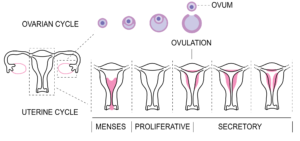Cancer Prevention Diet Foods to Eat and Avoid – Cancer is a serious health condition that affects millions of people every year. The good news is that you can reduce your risk of developing cancer by making some simple changes to your diet. In this article, we will discuss some of the foods you should be eating and avoiding to help prevent cancer.
Cancer Prevention Diet: Foods to Eat and Avoid
Why Diet is Important for Cancer Prevention
The foods you eat have a significant impact on your overall health, including your risk of developing cancer. A diet that is high in fruits, vegetables, whole grains, and lean proteins can help reduce your risk of many types of cancer. On the other hand, a diet that is high in processed and fried foods, red meat, and sugary drinks can increase your risk of cancer.
Foods to Eat for Cancer Prevention
Fruits and Vegetables
Fruits and vegetables are high in nutrients and antioxidants that can help protect your cells from damage that can lead to cancer. Aim to include a variety of colors in your diet, such as:
- Leafy greens (spinach, kale, collard greens)
- Berries (blueberries, strawberries, raspberries)
- Citrus fruits (oranges, grapefruits, lemons)
- Cruciferous vegetables (broccoli, cauliflower, Brussels sprouts)
- Tomatoes
- Carrots
Whole Grains
Whole grains are a great source of fiber and other nutrients that can help protect against cancer. Examples of whole grains include:
- Brown rice
- Quinoa
- Whole wheat bread and pasta
- Oatmeal
Lean Proteins
Choose lean proteins, such as:
- Fish (salmon, tuna, sardines)
- Skinless chicken and turkey
- Beans and legumes (chickpeas, lentils, black beans)
- Nuts and seeds (almonds, walnuts, chia seeds)
Green Tea
Green tea contains antioxidants that can help prevent cancer. Try drinking green tea instead of sugary drinks or coffee.
Foods to Avoid for Cancer Prevention
Processed and Fried Foods
Processed and fried foods are high in calories, unhealthy fats, and added sugars. These types of foods have been linked to an increased risk of cancer. Try to limit your intake of:
- Fast food
- Potato chips and other snacks
- Processed meats (hot dogs, bacon, sausage)
- Fried foods (chicken, french fries, onion rings)
Red and Processed Meat
Red and processed meat have been linked to an increased risk of colorectal cancer. Try to limit your intake of:
- Beef
- Pork
- Lamb
- Hot dogs
- Bacon
- Sausage
Sugary Drinks
Sugary drinks, such as soda and sports drinks, are high in calories and added sugars. These types of drinks have been linked to an increased risk of cancer. Try to limit your intake of:
- Soda
- Sports drinks
- Energy drinks
- Sweetened teas and coffees
Conclusion
Making simple changes to your diet can help reduce your risk of developing cancer. Aim to include more fruits, vegetables, whole grains, and lean proteins in your diet, while limiting your intake of processed and fried foods, red and processed meat, and sugary drinks.
FAQs
How often should I eat fruits and vegetables to reduce my risk of cancer?
- A: Aim to eat at least 5 servings of fruits and vegetables per day to reduce your risk of cancer.
Is it okay to eat red meat occasionally?
- A: Yes, it’s okay to eat red meat in moderation. Aim to limit your intake to 1-2 servings per week.
Can I still eat sugar if I’m trying to prevent cancer?
- A: It’s best to limit your intake of added sugars as much as possible, as they can increase your risk of cancer. Instead, satisfy your sweet tooth with fresh fruits or small amounts of honey or maple syrup.
What are some other lifestyle changes I can make to help prevent cancer?
- A: In addition to a healthy diet, maintaining a healthy weight, getting regular exercise, not smoking, limiting alcohol intake, and protecting your skin from the sun are all important lifestyle changes you can make to help prevent cancer.
How often should I get screened for cancer?
- A: It’s important to talk to your doctor about your personal risk factors and screening recommendations. Generally, it’s recommended to get regular screenings for breast, cervical, and colon cancer starting at certain ages, depending on your risk factors.




